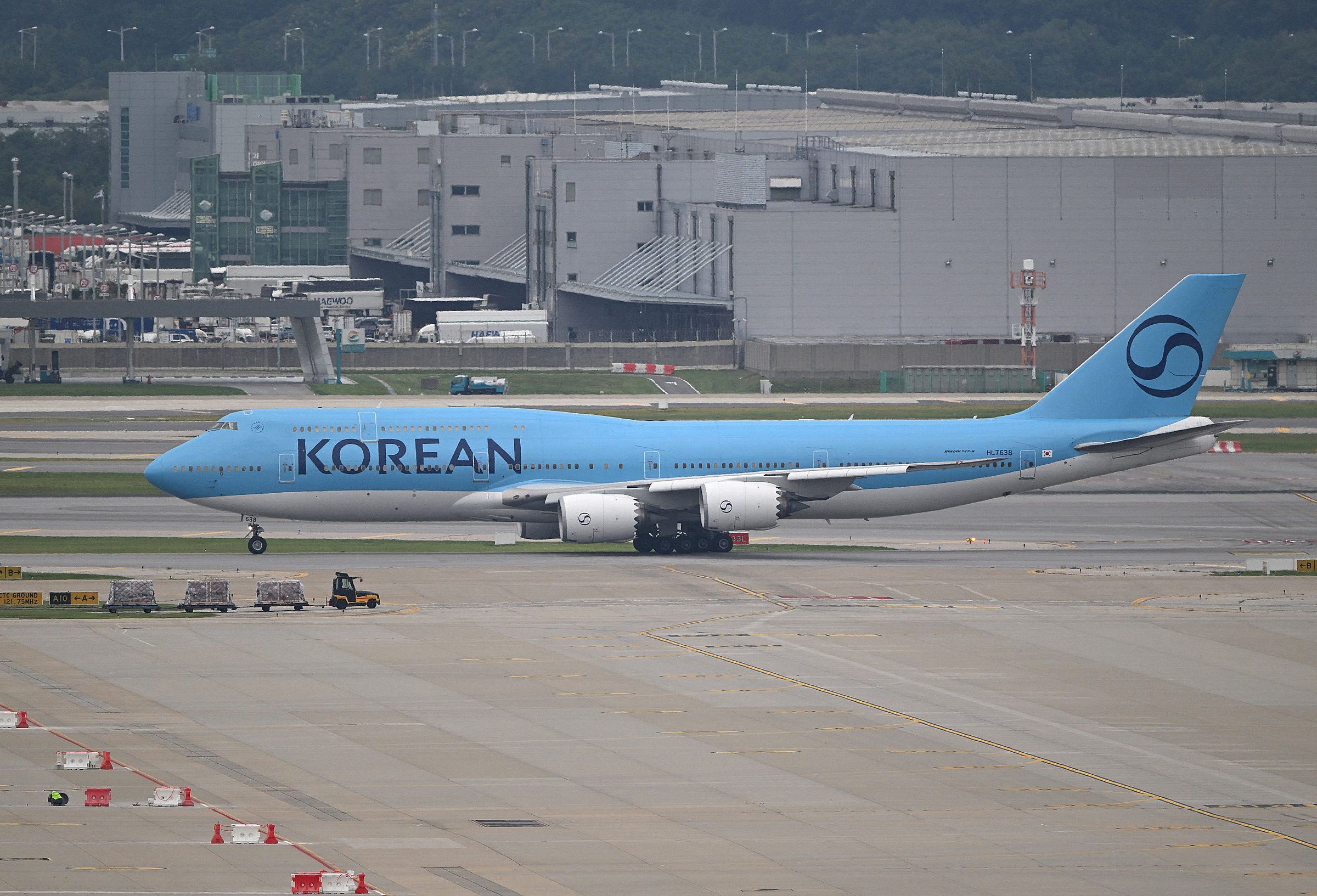A chartered flight carrying 316 South Koreans and 14 foreign nationals from Georgia arrived at Incheon International Airport, about 70 km from Seoul, this afternoon.
According to South Korean officials, these workers will return home and may plan future trips to the US. The foreign nationals on board included 10 Chinese citizens, three Japanese citizens, and one Indonesian citizen.
The workers were released from a detention center in Folkston, Georgia, early on 11/9, following negotiations between Seoul and Washington. One South Korean with family in the US opted to remain in detention and plans to file a lawsuit.
 |
The flight carrying South Korean workers landed at Incheon International Airport on 12/9. Photo: AFP |
The flight carrying South Korean workers landed at Incheon International Airport on 12/9. Photo: AFP
Immigration and Customs Enforcement (ICE) and law enforcement agencies conducted an immigration raid on 4/9 at Hyundai and LG battery plants in Georgia, detaining 457 people accused of working illegally, including over 300 South Korean citizens. The workers were handcuffed and transported in prison vans.
Top South Korean diplomats immediately traveled to Washington, D.C., to meet with Trump administration officials to address the situation. Senior executives from Hyundai and LG also went to Georgia to manage the fallout.
Following negotiations, the US agreed to release the workers, allowing them to return home under a voluntary departure arrangement rather than facing deportation. Those deported from the US often encounter disadvantages, such as restrictions on re-entry.
According to South Korean officials, the workers' repatriation was delayed by a day because President Trump encouraged them to stay. The US government is seeking to expand cooperation with South Korea to rebuild shipbuilding, semiconductor, and other industries.
After a meeting with US Secretary of State Marco Rubio on 10/9, South Korean Foreign Minister Cho Hyun stated that both sides agreed to collaborate on establishing a task force to improve the visa system for South Korean businesses.
President Lee Jae-myung warned on 11/9 that the ICE raid could significantly impact future investment decisions, especially when assessing the feasibility of direct operations in the US. South Korean companies have invested billions of USD in building factories in the US to access the market and avoid tariff threats from the Trump administration.
Huyen Le (According to AFP, Yonhap)












